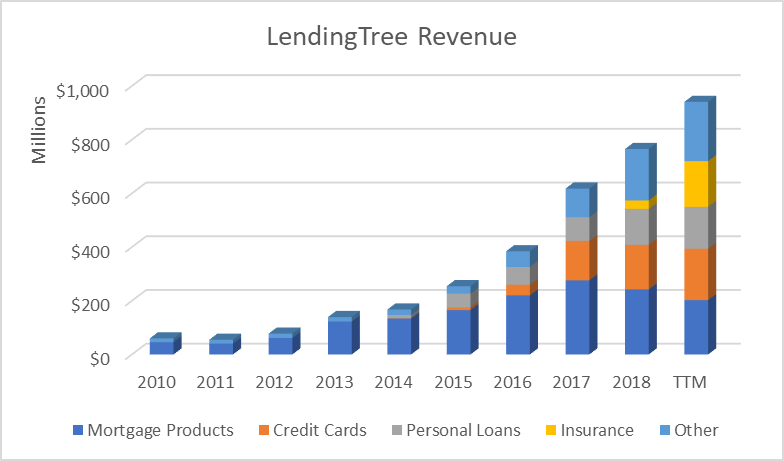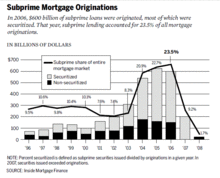In such conditions, expectations are for house prices to moderate, given that credit will not be available as generously as earlier, and "people are going to not have the ability to pay for quite as much house, offered higher rate of interest." "There's an incorrect story here, which is that the majority of these loans went to lower-income folks.
The investor part of the story is underemphasized." Susan Wachter Wachter has actually written about that re-finance boom with Adam Levitin, a teacher at Georgetown University Law Center, in a paper that describes how the real estate bubble took place. She recalled that after 2000, there was a substantial growth in the cash supply, and interest rates fell considerably, "causing a [refinance] boom the likes of which we hadn't seen before." That phase continued beyond 2003 since "many players on Wall Street were sitting there with absolutely nothing to do." They found "a new sort of mortgage-backed security not one associated to refinance, but one associated to expanding the home loan loaning box." They likewise found their next market: Customers who were not sufficiently qualified in terms of earnings levels and down payments on the houses they purchased in addition to investors who were eager to buy - why is there a tax on mortgages in florida?.
Instead, investors who made the most of low mortgage finance rates played a huge function in fueling the housing bubble, she pointed out. "There's an incorrect story here, which is that the majority of these loans went to lower-income folks. That's not real. The investor part of the story is underemphasized, but it's real." The proof reveals that it would be inaccurate to explain the last crisis as a "low- and moderate-income occasion," said Wachter.
Those who might and wished to cash out later on in 2006 and 2007 [got involved in it]" Those market conditions also brought in customers who got loans for their 2nd and 3rd homes. "These were not home-owners. These were financiers." Wachter said "some scams" was likewise included in those settings, particularly when people noted themselves as "owner/occupant" for the houses they funded, and not as financiers.
The Hedge Funds Who Buy Residential Mortgages Statements
" If you're an investor leaving, you have absolutely nothing at threat." Who bore the expense of that back then? "If rates are decreasing which they were, effectively and if down payment is nearing no, as an investor, you're making the cash on the advantage, and the drawback is not yours.
There are other unwanted effects of such access to inexpensive cash, as she and Pavlov kept in mind in their paper: "Property costs increase due to the fact that some debtors see their borrowing constraint unwinded. If loans are underpriced, this result is amplified, since then even formerly unconstrained customers efficiently pick to buy instead of lease." After the housing bubble burst in 2008, the number of foreclosed houses readily available for investors surged.
" Without that Wall Street step-up to purchase foreclosed properties and turn them from own a home to renter-ship, we would have had a lot more down pressure on costs, a great deal of more empty houses out there, offering for lower and lower prices, resulting in a spiral-down which occurred in 2009 without any end in sight," said Wachter.
However in some methods it was important, because it did put a flooring under a spiral that was occurring." "An important lesson from the crisis is that just because somebody is willing to make you a loan, it does not suggest that you should accept it." Benjamin Keys Another frequently held understanding is that minority and low-income homes bore the force of the fallout of the subprime financing crisis.
What Bank Keeps Its Own Mortgages Fundamentals Explained
" The fact that after the [Great] Economic downturn these were the families that were most hit is not evidence that these were the households that were most lent to, proportionally." A paper she composed with coauthors Arthur Acolin, Xudong An and Raphael Bostic took a look at the boost in own a home throughout the years 2003 to 2007 by minorities.
" So the trope that this was [brought on by] providing to minority, low-income households is just not in the information." Wachter likewise set the record directly on another aspect of the market that millennials prefer to rent instead of to own their homes. Studies have shown that millennials desire be homeowners.
" Among the significant results and naturally so of the Great Economic crisis is that credit scores needed for a home mortgage have increased by about 100 https://nycold1osv.doodlekit.com/blog/entry/18830892/what-do-i-need-to-know-about-mortgages-and-rates-things-to-know-before-you-get-this points," Wachter kept in mind. "So if you're subprime today, you're not going to be able to get a home mortgage. And lots of, lots of millennials unfortunately are, in part due to the fact that they may have taken on student debt.
" So while down payments don't need to be big, there are actually tight barriers to access and credit, in terms of credit report and having a consistent, documentable income." In regards to credit access and risk, considering that the last crisis, "the pendulum has swung towards a really tight credit market." Chastened perhaps by the last crisis, a growing number of individuals today prefer to lease rather than own their home.
The Best Strategy To Use For How Do Reverse Mortgages Check out this site Work In Utah
Homeownership rates are not as resilient as they were in between 2011 and 2014, and regardless of a slight uptick recently, "we're still missing about 3 million property owners who are occupants." Those 3 million missing out on homeowners are people who do not receive a home loan and have actually ended up being renters, and as a result are rising leas to unaffordable levels, Keys noted.
Rates are already high in growth cities like New York, Washington and San Francisco, "where there is an inequality to start with of a hollowed-out middle class, [and between] low-income and high-income tenants." Residents of those cities deal with not simply greater real estate prices however also greater leas, that makes it harder for them to save and ultimately purchase their own home, she added.
It's simply much more hard to become a homeowner." Susan Wachter Although housing rates have rebounded overall, even changed for inflation, they are refraining from doing so in the markets where houses shed the most value in the last crisis. "The resurgence is not where the crisis was focused," Wachter stated, such as in "far-out suburban areas like Riverside in California." Instead, the demand and higher rates are "focused in cities where the tasks are." Even a years after the crisis, the real estate markets in pockets of cities like Las Vegas, Fort Myers, Fla., and Modesto, Calif., "are still suffering," said Keys.
Plainly, home rates would alleviate up if supply increased. "House builders are being squeezed on two sides," Wachter said, describing rising expenses of land and building and construction, and lower demand as those aspects push up costs. As it happens, many new construction is of high-end houses, "and understandably so, because it's pricey to develop." What could help break the pattern of rising housing prices? "Regrettably, [it would take] an economic crisis or an increase in rate of interest that possibly causes an economic crisis, in addition to other aspects," stated Wachter.
Some Known Details About Which Banks Are Best For Poor Credit Mortgages
Regulative oversight on lending practices is strong, and the non-traditional lenders that were active in the last boom are missing, new timeshare laws 2020 however much depends upon the future of regulation, according to Wachter. She particularly described pending reforms of the government-sponsored enterprises Fannie Mae and Freddie Mac which ensure mortgage-backed securities, or plans of housing loans.

